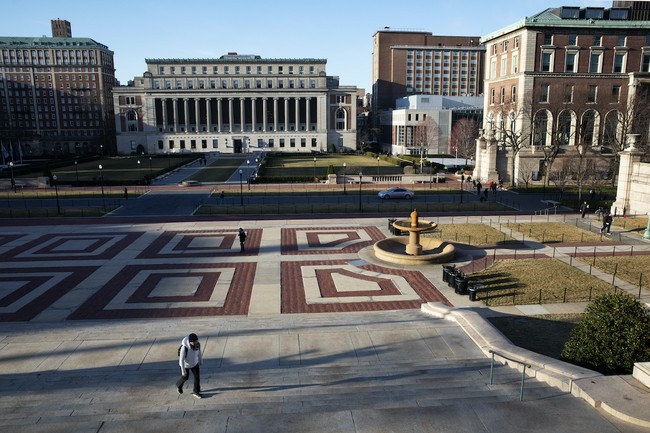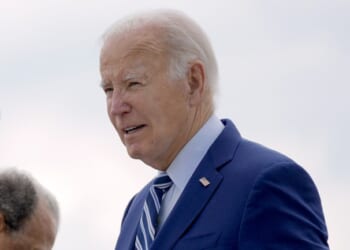
Columbia University hasn’t been in the news as much lately. It was just shy of two weeks ago that NBC News caught wind of secret meetings taking place off campus with the goal of restoring the tent encampment for Hamas that had been set up last year.
The coordinating meeting took place at a community center on Tuesday night in Brooklyn’s Bushwick neighborhood, approximately 12 miles from campus, according to screenshots of Signal messages from organizers and a person who was at the meeting…
More than 100 people were present at the gathering and all wore masks to conceal their identities, according to the person…
The student organizers did not introduce speakers by name and instead used Signal usernames and code names — including the beloved Pokémon “Squirtle” and words such as “butterfly” — to distinguish one another, according to the recording.
Organizers have also refrained from referring to the upcoming encampments as “encampments,” according to screenshots of Signal messages from the organizers and conversations with two people familiar with the planning for the protests. In writing, and verbally, participants have designated the encampments with a code name, the “circus.”
But Columbia learned about the plans to bring back the encampment and threatened anyone who tried to do so with arrest. And just like that, the circus clowns never showed up. Not that week and not last week either. It seems like it is finally getting through to these folks that there is no upside for them, not now that the school is reacting quickly instead of negotiating with these dopes.
Meanwhile, Columbia is still dealing with the fallout from having $400 million in federal funding yanked. Today the school announced it was terminating the contracts of 180 researchers.
Columbia’s leadership continues discussions with the federal government in support of resuming activity on these research awards and additional other awards that have remained active, but unpaid. We are working on and planning for every eventuality, but the strain in the meantime, financially and on our research mission, is intense. Therefore, the second prong of our efforts is to take action to adjust—and in some cases reduce—expenditures based on current financial realities.
Moving forward, we will be running lighter footprints of research infrastructure in some areas and, in others, maintaining a level of research continuity as we pursue alternate funding sources. In some cases, schools and departments are winding down activity but remain prepared to reestablish capabilities if support is restored. Across the research portfolio we have had to make difficult choices and unfortunately, today, nearly 180 of our colleagues who have been working, in whole or in part, on impacted federal grants, will receive notices of non-renewal or termination. This represents about 20% of the individuals who are funded in some manner by the terminated grants.
But that won’t be the end of it. In order to keep the school’s overall budget under control, no one at Columbia will be getting a raise in the next year and the school will also be offering some kind of buyout offer to get people to retire.
We will continue to make prudent budget decisions that will ensure long-term financial stability across the University, including making significant budget reductions within the University’s central administration. Across the University, we have set parameters to keep most salaries at their current level, without increases for the next fiscal year, with some schools and units providing a modest pool for employees at the lower end of their salary distribution. We have also developed programs to further streamline our workforce through attrition and are preparing to launch a voluntary retirement incentive program, the details of which will be shared next week.
Columbia has already been paying salaries for some of these researchers while it waited to see whether funding would be restored. The announcement today is a signal they don’t expect that to happen anytime soon.
Columbia had been temporarily paying the salaries of some of the affected researchers as departments came up with plans on how to weather the cuts, but the announcement on Tuesday signaled that effort was ending. Moving forward, scientists at Columbia can apply for grants for a limited time to complete their research and support graduate students who would otherwise be laid off.
Finally, the NY Times offer this example of one of the people impacted by this.
Tamara Sussman, a researcher in psychiatry at Columbia, had a federal grant canceled in March for research that examined the consequences of structural racism on substance use risk in Puerto Rican adolescents. The research assistant that she had recently hired was among those let go.
“This is a really hard time for anyone who wants to do research, but particularly for people who are starting out,” Dr. Sussman said Tuesday. “It is very disheartening to see the wheels of science kind of grinding to a halt in certain ways.”
Sorry, but I’m not sure losing a researcher on structural racism in Puerto Rico is a great loss for science.








